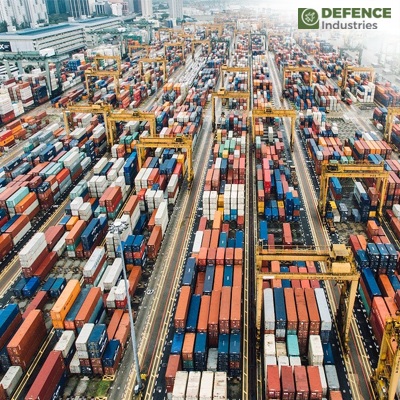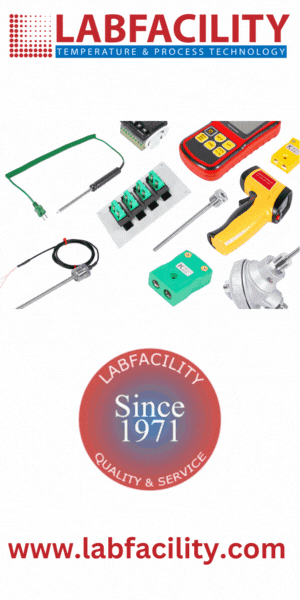Supply Chain Management in the Defence Industry 03 July 2024

Introduction:
Supply chain management (SCM) in the defence industry is a strategic and sensitive function that engages in the procurement and distribution of military products and services. In this context, it can be defined as the management and organization of different related activities like purchasing, supply, stocking, and transportation. Effective SCM in the context of the defence sector is crucial for preserving nations’ security, improving armed forces efficiency, and guaranteeing operational preparedness.
A. Key Components of Defence Supply Chain Management
1. Procurement and Sourcing
Supply chain management in the defence industry is a sub-activity of sourcing, which entails obtaining products and services from suppliers outside the acquiring organization. It involves activities such as supplier sourcing, contracting, and being able to meet the legal and regulatory expectations to a certain extent. Defence procurement is much formalized due to the involvement of large sums of money, policy correctness, and procedure compliance. Strategic sourcing is crucial since it aiming at acquiring quality materials and services that meet organizational needs at a cheaper and safer manner.
2. Inventory Management
Proper management of stores and inventories is important for the constant readiness and preparedness of the military assets and the stocks. This includes such factors as monitoring the availability and movement of stocks in the workplaces, storage and prudent use of materials being used. Modern technologies like RFID / IoT gadgets are quite popular in improving inventory visibility and stock control.
3. Logistics and Transportation
Transportation in the context of the defence industry includes planning and management of the transportation and storage of all materials. These stages can include transport of equipments, personnel and supplies to different areas. The supply chain management procedure must be very tight and flexible so that resources can be delivered where and when they are required. Sometimes, it also entails the integration of air, sea, and land transportation apparatuses to address the transport challenges.
4. Risk Management
There are risks that threaten the defence supply chain and they are geopolitical risks, cyber risks, and supply risks. It’s important to note that it is crucial for organizations to apply efficient risk management measures for the identification, evaluation, and minimization of such risks. This entails creating backup strategies, directing resources from a single source, and enhancing the ways through which organizational information and data will be protected from hackings and cyber attacks.
5. Compliance and Regulatory Requirements
The rules and compliance procedures for the defence industry are rigorously enforced and laid down. They are intended to address the quality, safety, and reliability of defence goods and services. These regulations are binding, as people were obliged to monitor and audit supply chains’ activities permanently.
B. Challenges in Defence Supply Chain Management
a. Complexity and Scale
The complexity of defence supply chain is therefore inherent because of the nature of military business and activities. Suppliers, contractors, and logistics providers are numerous and their management calls for efficient and effective C&I.
b. Geopolitical Factors
Politics does play a rather large role in the defence supply chain because political instability will always threaten a supply chain, no matter how good the relationship is. Political implication, such as political rivalry, ban on exports or imports and wars slow or hinder transportation while they also make it expensive. Hence, the factors reviewed above must be considered in the development of SCM and measures to overcome their influence taken.
c. Cybersecurity Threats
Concerning the vulnerability of the defence supply chain, the ever-increasing use of digital technologies in SCM has exposed it to cyber risks. The consequences of cyberattacks are severe which include loss of confidential information, slow or halting business processes and financial and reputation losses. To counter such threats one has to establish strong Anti Cyber Security measures in the supply chain.
d. Regulatory Compliance
Supply chain management might be quite rigorous for defence contractors and suppliers since they are forced to meet several regulations. Compliance is established in a network of rules, regulations, policies, which are interconnecting and depend on certain geographical areas and legal systems. If such measures are not followed then it means that there serious penalties and the contracts can be at risk.
e. Technological Advancements
Consequently, one of the prospects as well as risks to the defence SCM is an impressive rate of the technological change. Even though AI, blockchain, IoT and other technologies can be beneficial in supply chain management, implementation of such technologies is capital-intensive and needs specialists.
C. Strategies for Effective Defence Supply Chain Management
1. Adopting Advanced Technologies
The use of these technologies is crucial if there is to be an improvement in the functionality and reliability of the defence supply chain. Automation and other related technologies such as AI, blockchain and IoT can help in inventory management, increase the stock visibility and track the goods and services delivery in real time. These technologies can also assist in the risk management and reduction of complexities.
2. Supplier Relationship Management
Supplier relationships is a key area that must be developed in order to enhance the supplier’s performance and guarantee the reliability and quality of the supplies. Hence, SRM encompasses the constant communication, performance evaluation, and joint problem-solving processes with suppliers which demonstrated that establishing close relationships with critical suppliers is beneficial for supply chain risk management.
3. Risk Mitigation and Contingency Planning
The first dealing with the identification of key risks that can disrupt the supply of products and services to the defence organization. This included risk management where one is able to identify possible risks, how to avoid them and the backup plan in case they occur. To decrease the intensity of disruptions, the focus should be placed on the use of a diverse number of suppliers, large inventory stock, and annual risk evaluations.
4. Enhancing Cybersecurity
It is equally important in enhancing concrete securities for the defence supply chain against cyber risks. This entails ensuring that the organization has sound measures in place in terms of security that prevent unauthorized access to its networks and systems, performs periodic security audits, and trains its people on proper security measures and practices to observe when dealing with any form of technology. Engaging cybersecurity professionals and integrating the industry’s standards can improve the security status of the supply chain.
5. Regulatory Compliance Management
Indeed, legal compliance is an imperative factor in preserving the accountability of the defence supply chain. It is in this area that one has to ensure that new compliance adjustments are in line with the new regulations, and conduct compliance assessments where necessary and institute corrections accordingly as well. Through compliance management software, this aspect of an organization’s compliance can be made easier in order to avoid non-compliance.
Case Studies
1. Lockheed Martin's Digital Transformation
Lockheed Martin Company, the biggest defence contractor manufacturing, and distributing aeroplanes and space, weapon, has also strived to realize digital business change to strengthen its supply chain. The use of modern technology in Lockheed Martin’s supply chain management has benefited the inventory management through AI, supply chain visibility through the Blockchain application, and the lead time has thus been cut. The analyzation also reveals that the firm’s digital strategic initiatives have provided considerable cost efficiencies and process improvements.
2. BAE Systems' Supplier Collaboration
BAE Systems, the third largest defence contractor, has been targeting at the improvement of relationship with the suppliers to strengthen the supply chain. Today, BAE Systems maintains cooperative relationships with principal suppliers by frequently communicating, checking the performance of suppliers and suppliers’ solutions to problems.
This has ensured that the company acquires quality materials and services from its suppliers hence fulfilling the company’s strategic objectives.
Conclusion
It is, therefore that managing the supply chain in defence industry is a delicate process than can only be achieved through a well thought out and intricate system of coordination and integration. It is crucial to understand that precisely SCM is critical for preserving national security and improving the overall capacities in a nation’s military as well as readiness for missions. For instance, the efficient adoption of new technologies, improved relations with suppliers, effective risk management, and compliance procedures can improve the defence organizations’ supply chain efficiency and reliability. Due to this realization, effective SCM will become central to the defence industries’ future survival and efficiency of the timely delivery of military equipment, supplies, and services.








